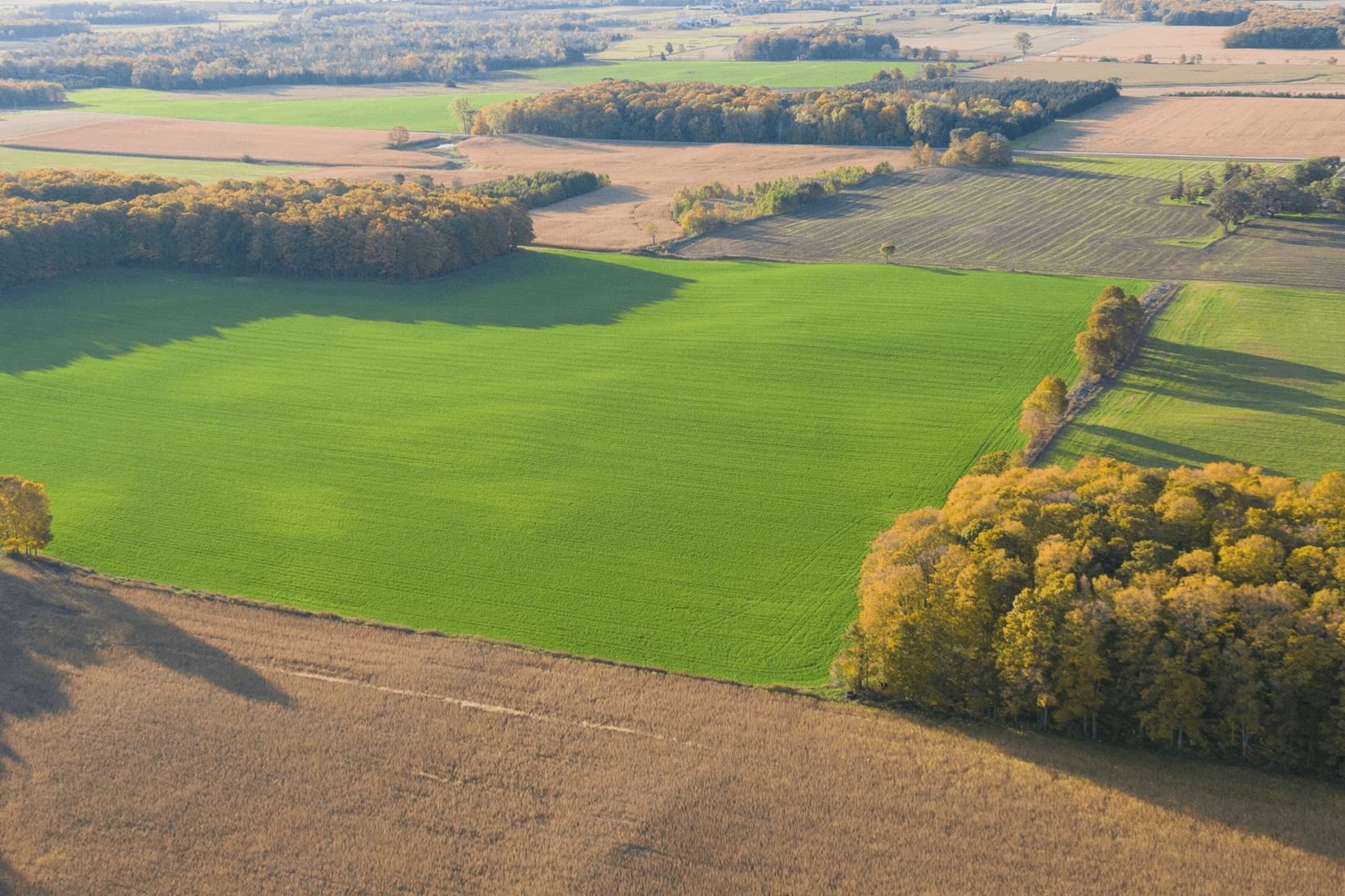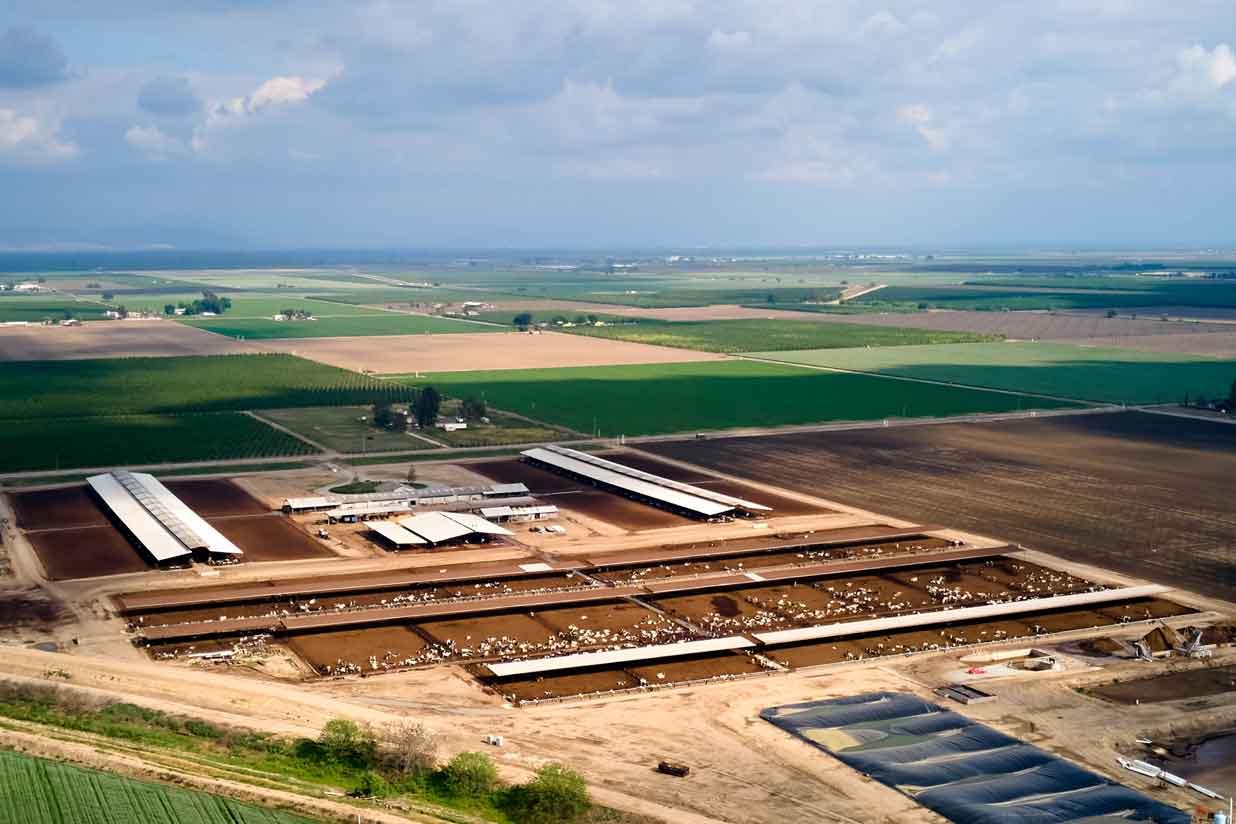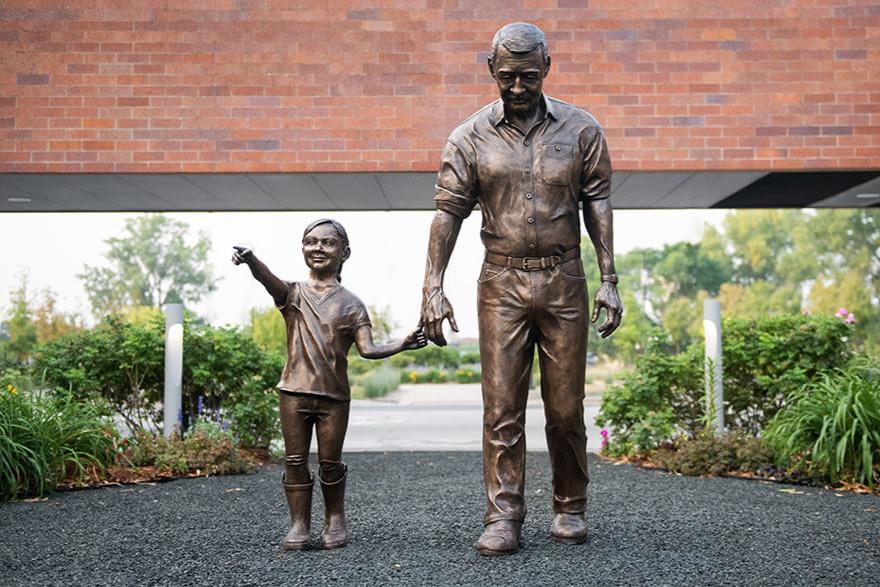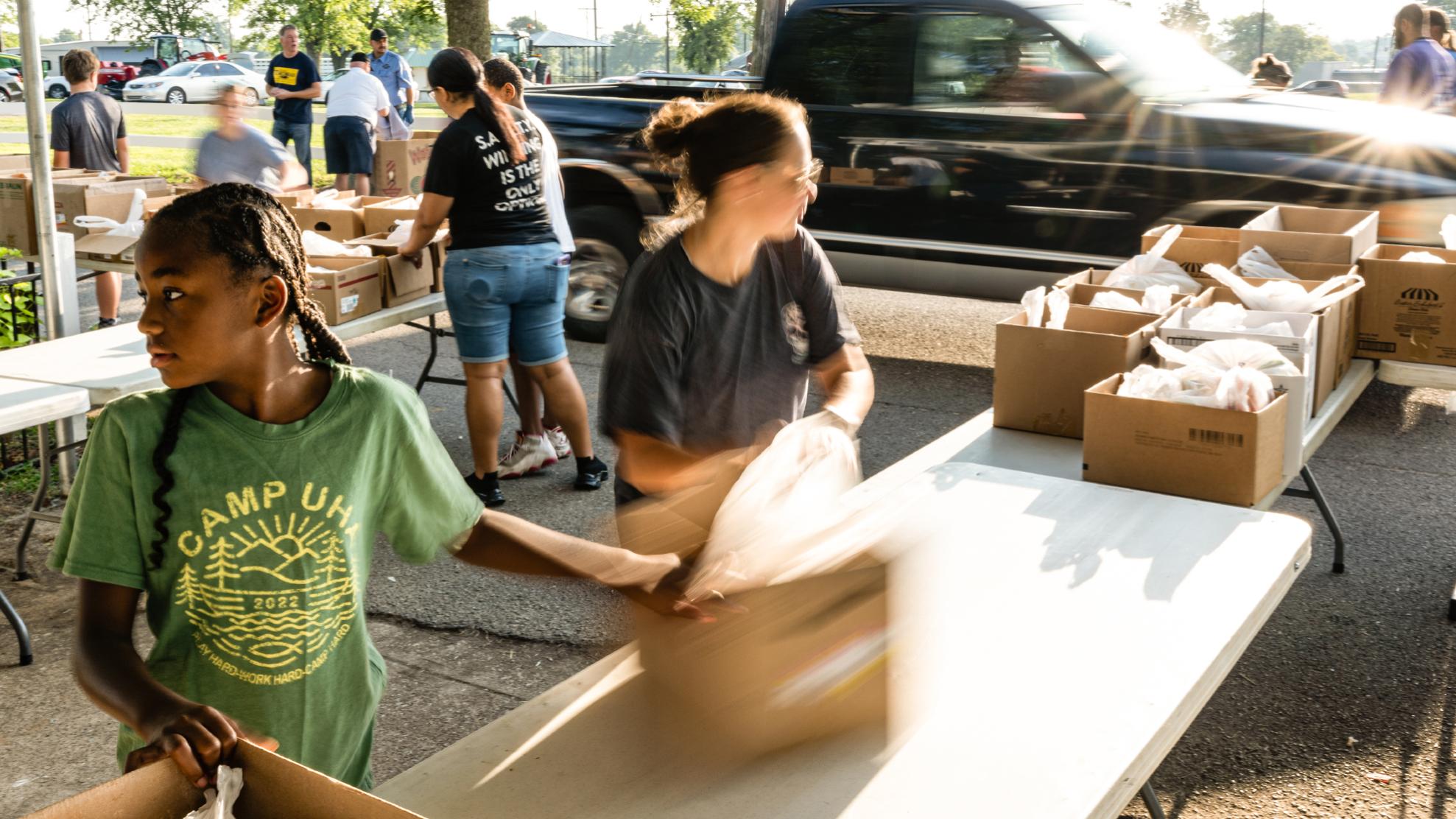
Business
Advancing food security, one meal at a time
From big cities to rural towns, nonprofits and volunteers fight hunger and build healthy communities across the globe.
“You never know who is going to need food tomorrow.” -- Angelica Evens
This might sound like common sense, but for those involved in building food secure communities it’s a profound insight. Food instability can happen to anyone, so building resilient systems benefits everyone.
Food relief and development organizations prioritizing human dignity, cultural awareness and local knowledge are changing the world. And their work can mean the difference between a hungry and a healthy community.
Based in Hopkinsville, Kentucky, the Aaron McNeil House provides crisis relief, a food pantry, and organizes a regular food distribution event that serves about 1,000 families each month.
On a typical distribution day, 30 to 40 volunteers unload between 15 and 25 thousand pounds of frozen meat, frozen dairy, fruits, vegetables and boxed meals delivered by Feeding America. The volunteers then package the various food products into boxes for each family who attends, and load up about 300 cars per hour at the local fairground until the food is gone.
But even that can’t meet the need sometimes. “This month we were out of food in an hour,” says executive director Kurt Anderson. “We unfortunately had to turn away 40 cars or so.”
In an economically disadvantaged county, food services provide a vital lifeline. “Many folks live week to week,” says Anderson, “and if anything happens out of the ordinary they’re in trouble.” Medical bills, job loss, or even tornadoes can all bring about sudden, unexpected need.
This precariousness has taught Anderson and his colleague Sierra Latham the power of food in restoring human dignity to those who feel trapped by unfortunate circumstances. To Latham, a sense of dignity and something to eat is the bare minimum we deserve as people. “We want to be able to give them those resources to maintain a healthy relationship with food and get that sense of dignity back, and that sense of control over their life.”
Anderson recalls a young mother who came to the Aaron McNeil House after being denied services at a number of agencies and broke down crying. Anderson and his colleagues were able to give her and her children food, and just talk with her, one human to another. “When she left, she was actually smiling. That’s why we’re here.”
Where the Aaron McNeil House has managed food distribution in Kentucky for 50 years, the Du Nord Foundation was organized in 2020 to serve a specific neighborhood in urban Minneapolis.
“Hunger is not just about food, it’s actually about justice,” says Angelica Evens, executive director of the Minneapolis-based mutual aid nonprofit. “It’s not just about nourishing the body, but nourishing the soul as well.”
To help each food item distributed by the Du Nord Foundation’s food shelf, called the Community Market, benefit more than just the body. Evens and her colleagues make a sustained and intentional effort to understand their neighbors, not just count mouths fed. Almost 80% of those served by the Du Nord Foundation are in the Latinx community, so the Community Market is stocked with ingredients community members want and feel comfortable cooking.
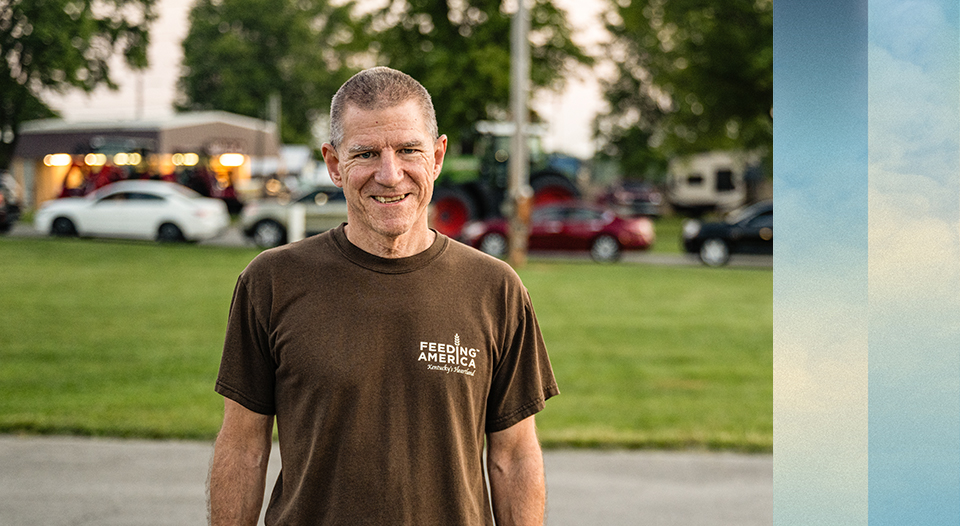
Food relief and development organizations prioritizing human dignity, cultural awareness and local knowledge are changing the world. And their work can mean the difference between a hungry and a healthy community.
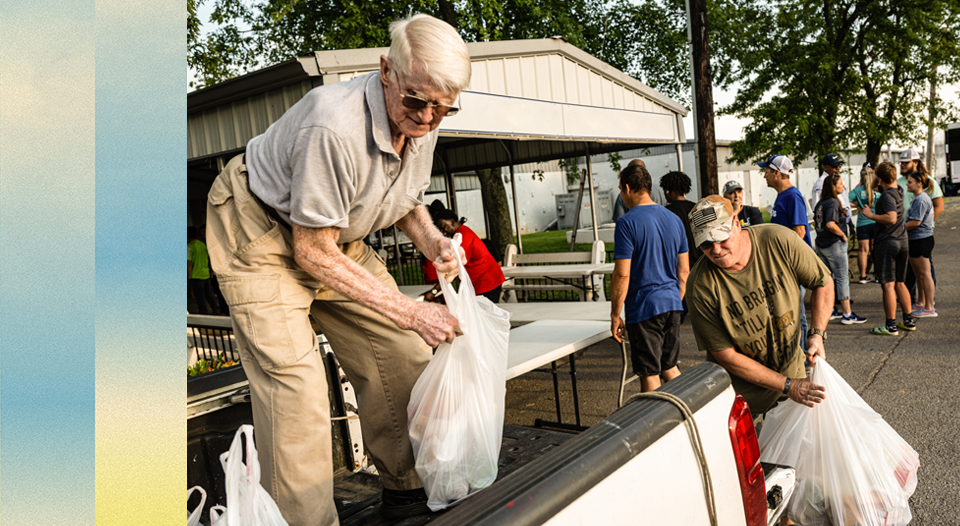
On a typical distribution day, 30 to 40 volunteers unload between 15 and 25 thousand pounds of frozen meat, frozen dairy, fruits, vegetables and boxed meals delivered by Feeding America.
While fresh, culturally relevant food may be more expensive to source, Evens resists compromising the foundation’s high standards. “Supporting the community doesn’t have to be driven by efficiency…more and more we are value-driven instead of efficiency- or convenience-driven.”
But Evens is quick to point out that “no one single organization can really address such complex issues; you need a village.” Therefore, developing reliable networks and partnerships with local farmers and food suppliers to source healthy, culturally relevant food has been critical for the Du Nord Foundation’s success. In 2021 alone, the Community Market served more than 24,000 people, with 44% of its offerings grown locally.
But neither the Du Nord Foundation nor the Aaron McNeil House could serve anyone if they couldn’t access a secure food network themselves. Venture37 tackles this problem. A nonprofit arm of Land O’Lakes, Inc., Venture37 builds food security across the globe by promoting economic development through agriculture.
Whether training farmers to combat corn-eating pests in Ethiopia, introducing tools to reduce the physical burden of harvesting on women in Tanzania, or bolstering dairy supply chains for small producers in Mozambique, Venture37 Executive Director John Ellenberger knows that solutions only last when local voices are prioritized.
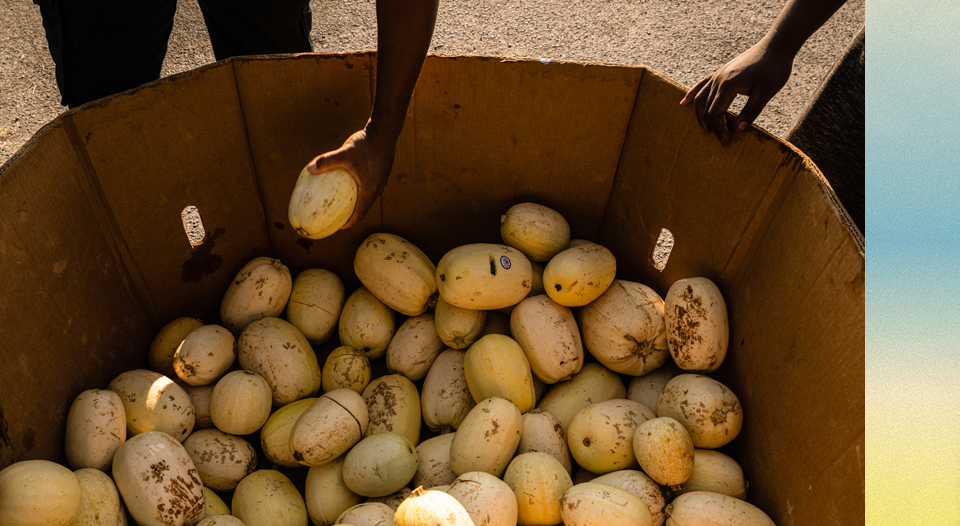
From collaborations on experimental field plots to hosting foreign farmers on extended visits, Venture37 uses the power of American agricultural co-op networks to help solve all sorts of global food security issues.
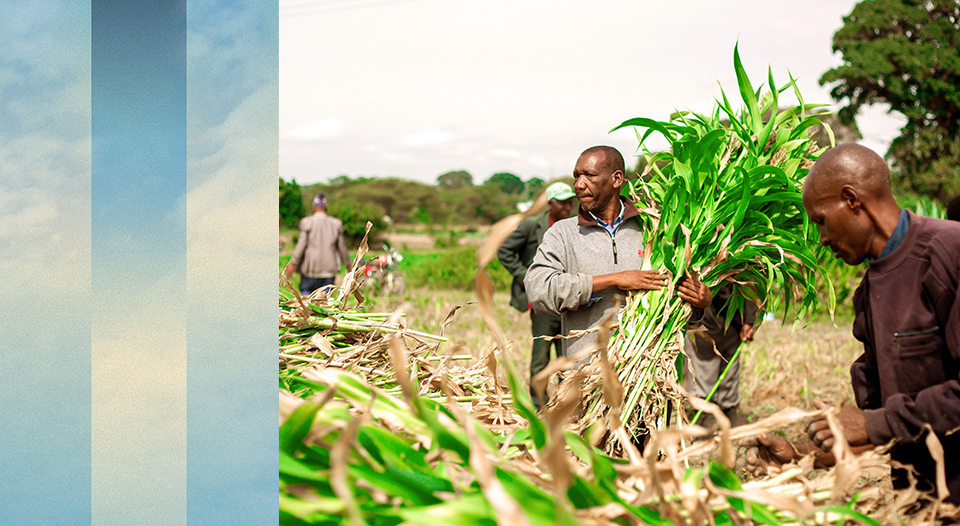
A nonprofit arm of Land O’Lakes, Inc., Venture37 builds food security across the globe by promoting economic development through agriculture.
The goal of using local knowledge is to find durable, local solutions to food security issues. To do so, Venture37 looks at the entire context, including the political, cultural, and media landscape for a given area. If smartphone adoption is high, they may develop an app to help identify problem insects. If not, perhaps an informational campaign via local radio stations will be disseminated to help farmers work in the best ways they can.
Venture37 also aims to share insights and techniques from farmers and agribusinesses in the United States with farmers from across the world. “We tap into the know-how and the ecosystem of Land O’Lakes as much as we possibly can,” says Ellenberger. “That’s an amazing pool of expertise.” From collaborations on experimental field plots to hosting foreign farmers on extended visits, Venture37 uses the power of American agricultural co-op networks to help solve all sorts of global food security issues.
Although the context of food security is different across the globe, the agricultural challenges are the same. “You know cows in Africa have to be milked two to three times, just like they do in America,” says Ellenberger. “The challenges of farmers making a good living from their work, the challenges of adequate food security for everyone, the challenges of a supportive functioning, ethical market system that you can be a member of…those are challenges that are universal when it comes to agriculture.”
Those universal challenges bring universal results: strong food networks enable healthy, food secure communities. And that’s something everyone can benefit from, whether in Kentucky, Minneapolis, or on the other side of the world.
